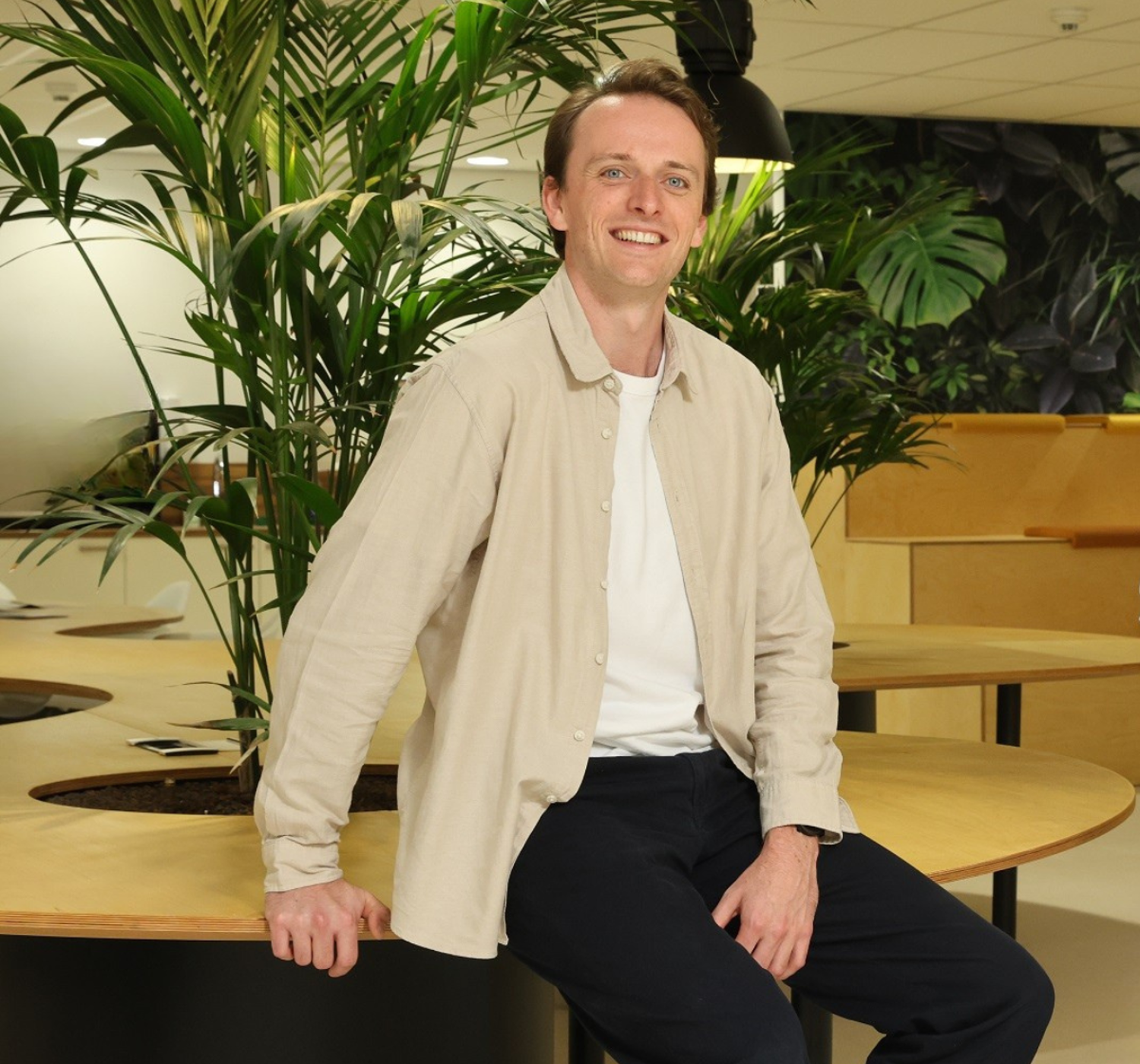09-01-2025
2024 Achievements and 2025 Goals: Bram Kerssemakers on Protein Port’s impact

In April 2024, Bram Kerssemakers took on the role of program manager for Protein Port, leading its second phase to accelerate the protein transition in South Holland and beyond. Building on the knowledge gained during the previous 2 years, Protein Port has achieved significant milestones in structuring the program and launching impactful initiatives. In this interview, Bram discusses the progress made over the past eight months and outlines his vision for the future.
Can you tell us about your first eight months as program manager?
“They’ve been incredibly diverse and rewarding. The role involves a broad range of responsibilities, from setting up communication strategies, mapping the ecosystem, and building a network of protein innovators to diving into content-driven projects. Since this is the first year of Protein Port 2.0, much of my focus has been on structuring the way we work and laying a solid foundation. At the same time, we’ve started actively supporting businesses in the protein transition. This mix of groundwork and impactful initiatives has made for an exciting start.”
How does Protein Port 2.0 build on its predecessor?
“Protein Port 1.0 ran for two years and focused on hosting large events and identifying key challenges in the sector. This initial phase provided an excellent starting point by highlighting the sector’s needs. Protein Port 2.0 is a continuation and evolution of that work. We’re now addressing six core thematics identified during the first phase: Finance, Research collaboration, Shared facilities, Commercialization and market acceptance, Human capital, and Policy and regulatory affairs. These focus areas guide our efforts to make tangible progress in the protein transition.”
What progress has been made within these thematics in 2024?
“In Finance, we created an extensive overview of funding options at regional, national, and European levels, helping organizations identify suitable mechanisms for their needs. We’ve also built a network of investors interested in the protein transition.
For Research collaboration, we took a leading role in writing a large subsidy grant application . For this proposal we matched 3 regional innovative companies, seeking complementarity to create a new protein product. This project also ties into shared facilities by making specialized equipment accessible to smaller companies, thereby proposing a strong ecosystem component.
Shared facilities were further emphasized during a scaling event we co-organized. Service providers showcased shared piloting, production, and research capabilities, giving attendees insights into available resources.
In Policy and regulatory affairs, we are part of the European APROVALS project, working with other hubs to identify legislative barriers in cellular agriculture and propose improvements. Aligning these European activities with national initiatives ensures a cohesive approach.”
What are your plans for 2025 within these thematics?
“Human capital will be an important topic in 2025. We aim to spark enthusiasm for entrepreneurship in the alternative protein sector by encouraging individuals to start their own ventures and form well-rounded founder teams. Together with several partners, we plan to bridge the gap between technology and business through dynamic matchmaking events that unite technical expertise with entrepreneurial vision.
For Research collaboration and Shared facilities, we’ll focus on creating expert tables where stakeholders from across the value chain—from raw material producers to retailers—can address challenges collaboratively. This approach ensures that each step of the value chain is aligned from the outset. We also plan to organize a major event to disseminate knowledge gained from expert tables and projects. This event will serve as a platform to share learnings and foster new connections.”
“Our approach is agile and sector-driven. We don’t dictate topics; instead, we identify challenges alongside industry partners and bring together expertise to address them."
What role does Protein Port play in fostering collaboration?
“Our approach is agile and sector-driven. We don’t dictate topics; instead, we identify challenges alongside industry partners and bring together expertise to address them. Expert tables are a prime example. These small, focused groups tackle specific issues, which can lead to various outcomes, such as securing funding, initiating research collaborations, or organizing events. By acting as facilitators, we ensure that the sector’s needs drive our activities.”
What do you hope to achieve in 2025?
“I’d like to see Protein Port enable more meaningful collaborations across the protein transition sector. My hope is that companies not only connect but also work together to develop innovative and successful products. Achieving broader societal and political support for the protein transition is another critical goal. If we can contribute to a thriving ecosystem and see tasty, sustainable products entering the market, I’ll consider 2025 a success.”
How can companies get involved with Protein Port?
The program, subsidized by the Province of South Holland, is designed to be as accessible as possible. Companies interested in addressing specific challenges, accessing expertise, or joining expert tables are welcome to reach out. All we require is their time and insights. By lowering barriers to participation, we hope to foster an inclusive and collaborative environment for advancing the protein transition.”
Are you active or interested in the protein transition and eager to join a Protein Port expert group?
Reach out to Bram Kerssemakers at bram.kerssemakers@planet-b.io
